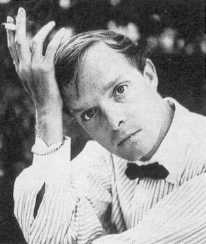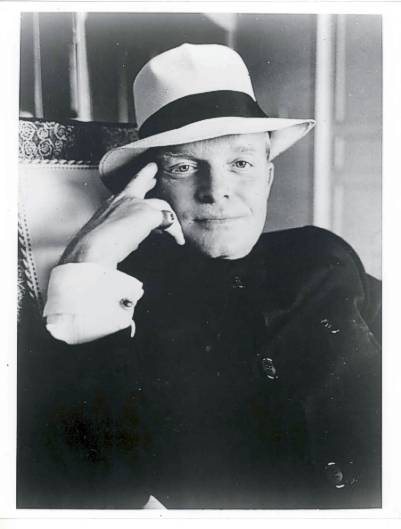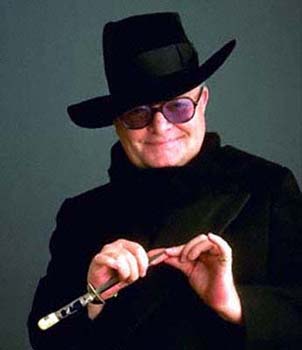| |
 |
| |
Source: "Truman Capote." The Living Room Biographies. |

Source: "Truman Capote's Signiture..." |

Source: "Capote, Truman: 1924-1984" |
|
Capote’s difficult life contributes largely to his impact on queer literature and the queer community. He faced many challenges growing up, from his sexuality to his lack of relationships with his family, but no matter how far he has come, his childhood still affects him (Garson 81). His works were greatly impacted by his family problems, as he was “shaped forever by his belief that neither parent wanted him” (Garson 65). His stories and characters therefore deal with many of the struggles people, and homosexuals in general, faced at that time
This allowed his work to touch readers on a personal level, because many could relate to either what the characters were experiencing or what they desired. Capote struggled “all of his life to find a place for himself in the world, battling homophobia from childhood through his most famous years” (Dukes 142). His works expressed and represented this battle. This influenced queer literature because Capote was a strong public figure, calling attention to the homosexual discrimination through his writing. Both his fictional and his somewhat autobiographical writing “helped establish what might be called the quintessential homosexual writing style of the period” (Dukes 1); his works became a model for homosexuals in New York. Through his characters, such as the heroic gay adolescent, Joel, in Other Voices, Other Rooms, was able to turn the “oppressively inaccurate assumptions about gay men into art” (Dukes 142). Capote created characters and stories about homosexuals that were praised for their style, leading to greater recognition of the queer community. His “triumph over homophobia so that he could have a life and produce major writing took an enormous amount of strength” (Dukes 142), but it helped pave the way to acceptance of homosexuals, as Capote became a figure admired and praised by public view.
Capote used his fame to help establish a positive image of homosexuality. Rather than accepting his “tendency to strike outlandish poses, his high-pitched voice, and his taste for the bizarre as disabilities, and seclude himself from society, Capote turned these into an advantage” (Inge ix). With recognition of his writing, Capote became a well-known and well-liked figure in the wider community, while also acting as a strong support for the queer community. He, like other well-known icons such as Elvis and Marilyn Monroe, used the media to gain recognition for the (queer) community he was a part of by creating “a shocking figure for the world stage” (Inge ix). As a writer, he was not only “devoted to aesthetics, but deeply engage in the world at large” (Inge ix). His involvement included not only taking part in the queer community and culture around him, but, through his writing, helping to create a world in which the queer community could become part of the wider society.
Much of Capote’s influence on queer literature and culture developed in the years following his death. Since his death, society has recognized and praised his works more than when we was alive. His short stories have impacted gay and non-gay literature, thus allowing his “literary reputation and influence [to] expand” (Garson 64-6). Today, people continue to read and analyze his stories and novels, gaining insight into Capote’s life, as well as the difficulty of being a homosexual in a society that is not always so accepting. As the world moves to understand his life and further appreciate his works, “Capote will no doubt emerge as a hero of gay liberation in the middle years of this century” (Dukes 142). Capote was influential at the time he was publishing because he embraced, rather than denied his sexual identity; he fought for gay rights by expressing through his characters that homosexuality is normal and that individual differences should be respected (Pugh 2). His life and works continue to impact queer literature and the community at large as his value as a gay writer grows. |


